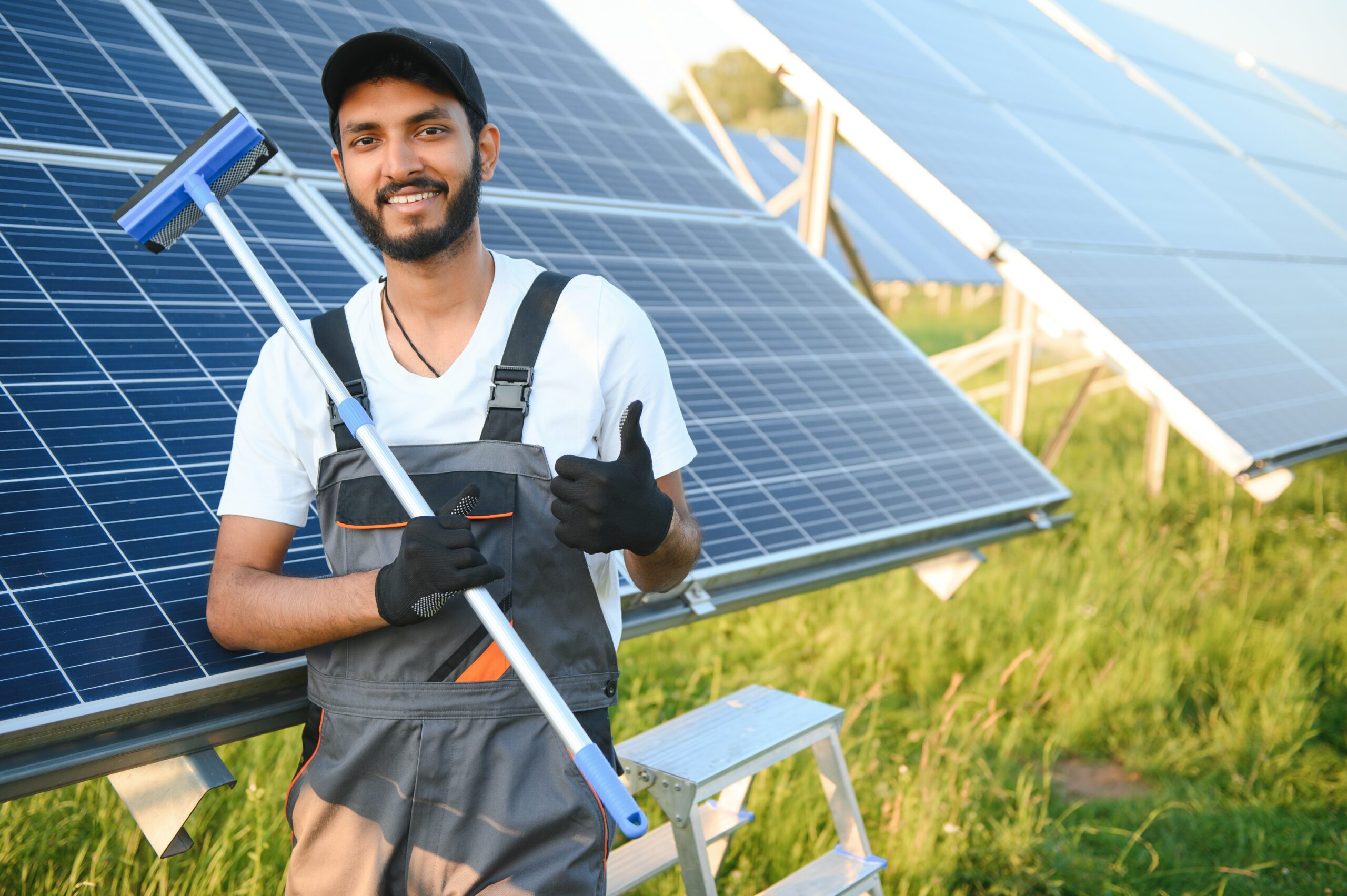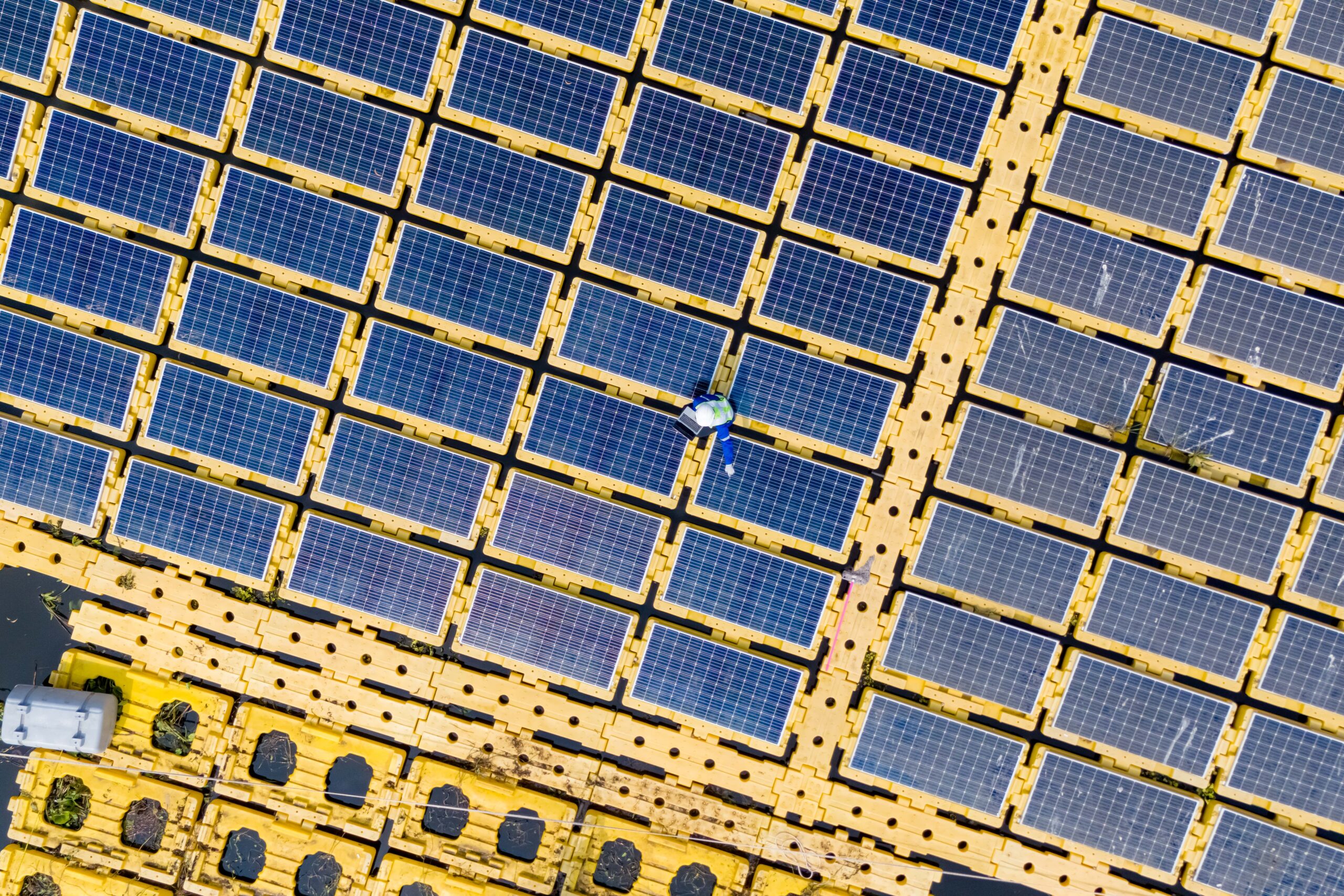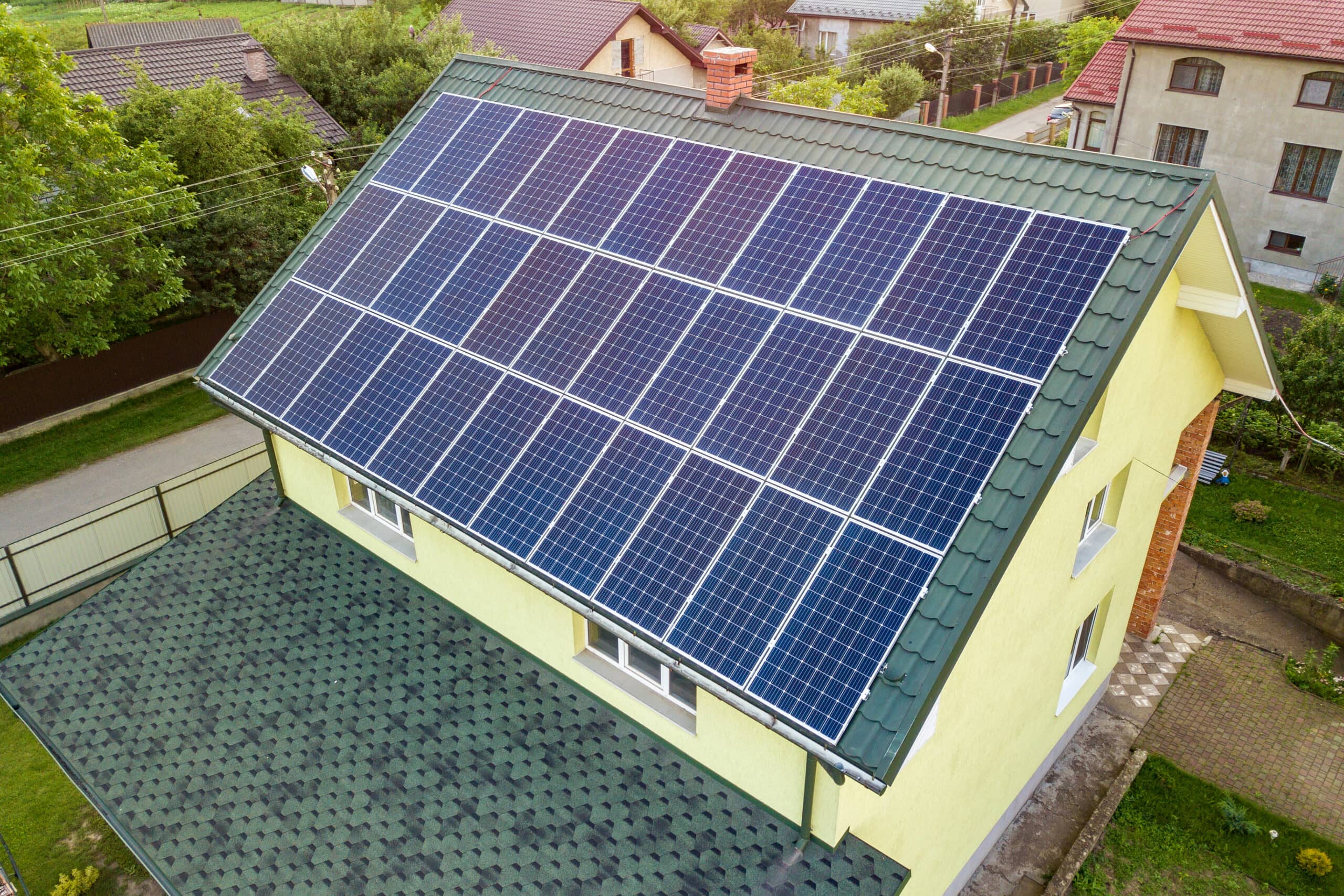In this article, we’ll address a prevalent misconception surrounding solar panels: they demand extensive maintenance. Despite this misconception, solar energy is rapidly gaining popularity for its remarkable benefits. Join us as we dive into the world of solar panels to reveal the truth about maintaining your panels, showing that it’s less demanding than many think.
Understanding Solar Panel Maintenance
Solar panels are surprisingly low-maintenance compared to many other appliances or equipment. One of the key reasons for this is their lack of moving parts. Unlike traditional appliances that may require regular servicing or repairs, solar panels have a simple design that minimizes the need for extensive upkeep.
The Only maintenance task for solar panels is occasional cleaning. Over time, dust, dirt, and debris can accumulate on the surface of the panels, reducing their efficiency. However, this can be quickly addressed with simple tools like a garden hose or a soft brush. A gentle rinse or light scrub can remove buildup and restore the panels’ optimal performance.
It’s important to note that solar panels are designed to withstand various weather conditions, including rain and snow. Their surfaces are typically made of durable materials that can withstand exposure to the elements. This means you don’t have to worry about them getting damaged easily or requiring constant repairs.
In contrast, think about the maintenance needs of traditional appliances or equipment. They often have complex mechanisms, moving parts, and intricate systems that require regular check-ups, lubrication, or even replacement of worn-out components. Solar panels, on the other hand, offer a much more straightforward and hassle-free maintenance routine.
Investing just a little time in periodic cleaning ensures that your solar panels continue to generate clean and renewable energy efficiently. So, don’t let the misconception of high maintenance deter you from embracing solar energy. With minimal upkeep and long-lasting performance, solar panels are a smart and sustainable choice for powering your home or business.
Debunking Maintenance Myths
There are a few common misconceptions we can address when it comes to solar panel maintenance.
1. Frequent Repairs or Part Replacements: Contrary to popular belief, solar panels do not require frequent repairs or replacements. As mentioned earlier, their simple design with no moving parts significantly reduces the chances of mechanical failures. Many solar panel manufacturers offer warranties that cover the panels for several decades, showcasing their reliability and durability.
2. Costly Maintenance Expenses: Another myth is that solar panel maintenance comes with hefty costs. However, the reality is quite the opposite. Solar panels have meagre maintenance costs compared to other energy systems. According to industry data, the average annual maintenance cost for solar panels is less than 1% of the initial installation cost. This minimal expense is primarily associated with occasional cleaning and inspections.
Let’s consider some statistics to emphasize animal maintenance’s cost-effectiveness further. Studies have shown that solar panels can operate efficiently for 25 to 30 years or more with proper care and maintenance. During this time, the maintenance cost is significantly lower than the savings from reduced electricity bills. This makes solar panels an excellent long-term investment.
By dispelling these maintenance myths and presenting the facts, it becomes clear that solar panels are both environmentally friendly and economically advantageous. The low maintenance requirements and associated costs make them a practical choice for individuals and businesses.
Comparative Maintenance Analysis
Let’s investigate a comparative maintenance analysis between solar panels and other household systems like air conditioning units. Here’s what you need to know:
1. Maintenance Needs: Solar panels have significantly lower maintenance needs than traditional household systems like air conditioning units. Solar panels have no moving parts, meaning fewer components can wear out or break. On the other hand, air conditioning units require regular filter replacements, coolant refills, and periodic inspections to ensure optimal performance.
2. Ongoing Maintenance Requirements: Traditional energy systems often require ongoing maintenance to keep them running smoothly. For example, air conditioning units may need regular cleaning, filter replacements, and professional servicing to maintain efficiency. These maintenance tasks can be time-consuming and may require professional assistance, adding to the overall cost.
3. Maintenance Costs: Solar panels have minimal ongoing maintenance costs compared to traditional energy systems. While air conditioning units may require regular servicing and filter replacements, solar panels typically only require occasional cleaning and inspections. As mentioned earlier, the solar panel maintenance cost is significantly lower, usually less than 1% of the initial installation cost.
Over time, the cost difference becomes even more pronounced. Traditional energy systems often require frequent maintenance, adding time, effort, and expenses. On the other hand, solar panels have lower ongoing maintenance requirements and costs, making them a more cost-effective option in the long run.
Case Studies and Real-world examples
1. Extreme Weather Conditions: Solar panels have also proven durable in extreme weather conditions. For instance, solar panels have withstood these challenges in areas prone to hurricanes or heavy snowfall and continued to generate electricity. Their sturdy construction and resistance to damage make them a reliable choice even in harsh climates.
2. Commercial Solar Farm in the US: The Atkina Solar Project, spanning several acres and comprising thousands of solar panels, demonstrates the low-maintenance nature of solar energy on a larger scale. With monitoring and occasional panel cleaning, the solar farm has consistently produced high levels of electricity without significant maintenance interventions.
3. Off-Grid System in Rural India: In rural India, off-grid solar panel systems provide electricity to remote communities with minimal maintenance needs. These systems, installed in areas with limited access to electricity grids, have proven reliable and require only occasional inspections and cleaning. Despite being exposed to challenging environmental conditions like dust and monsoon rains, off-grid solar panels continue to function effectively with minimal maintenance.
4. Urban Residential Complex in Australia: A residential complex in urban Australia relies on solar panels for a significant portion of its energy needs. The complex’s maintenance team conducts quarterly inspections and cleaning of the solar panels to ensure optimal performance.
Despite being situated in an urban environment with varying weather patterns, the solar panels have demonstrated consistent energy generation with minimal maintenance issues, showcasing the practicality of solar energy in urban settings.
Technological Advancements and Maintenance
Technological advancements in solar panel design and materials have indeed played a significant role in reducing maintenance needs. Here are a couple of key innovations that have enhanced efficiency and reduced manual upkeep:
1. Self-Cleaning Coatings: Some modern solar panels have self-cleaning coatings. These coatings help to minimize the buildup of dirt, dust, and other debris on the surface of the panels. The panels can maintain optimal performance without requiring frequent manual cleaning by shedding off these particles. This innovation reduces maintenance needs and maximizes sunlight absorption for efficient energy generation.
2. Automated Maintenance Systems: Another exciting innovation is the development of automated maintenance systems for solar panels. These systems utilize advanced sensors and robotics to detect and address any issues that may arise. For example, they can detect and remove any shading caused by leaves or debris, ensuring the panels are constantly exposed to direct sunlight. By automating maintenance tasks, these systems reduce the need for manual upkeep and ensure the panels are operating at their best.
These technological advancements in solar panel design and materials have significantly reduced maintenance needs. Self-cleaning coatings and automated maintenance systems enhance efficiency, minimize manual upkeep, and ensure optimal performance of solar panels.
Environmental and Cost Benefits
Solar panels with minimal maintenance requirements contribute to a greener and more sustainable future. By harnessing the sun’s power, these panels reduce the consumption of non-renewable resources such as fossil fuels. This, in turn, helps to lower carbon emissions and mitigate the impact of climate change. Choosing low-maintenance solar panels is a great way to impact the environment positively.
In addition to the environmental advantages, minimal maintenance translates into long-term cost savings. With fewer maintenance needs, solar panel owners can enjoy lower operational expenses. There’s no need for frequent repairs or intensive manual upkeep, which can be costly. Moreover, the reduced maintenance requirements contribute to increased Return on Investment (ROI) for solar panel owners. This means that over time, the financial benefits of investing in solar panels outweigh the initial costs.
So, by opting for low-maintenance solar panels, you contribute to a cleaner environment and enjoy long-term cost savings and increased ROI.
Solar panels have come a long way in terms of technological advancements and design, debunking the myth of high maintenance. With innovations such as self-cleaning coatings and automated maintenance systems, the need for manual upkeep has been significantly reduced. These advancements enhance the efficiency of solar panels and make them a reliable and low-maintenance energy solution.
Solar panels offer a sustainable and hassle-free option for meeting our energy needs. We can reduce our reliance on non-renewable resources and lower carbon emissions by harnessing the sun’s power. With minimal maintenance requirements, solar panels provide long-term cost savings and increased ROI. So, let’s embrace solar energy as a practical and environmentally friendly choice for a brighter future.






